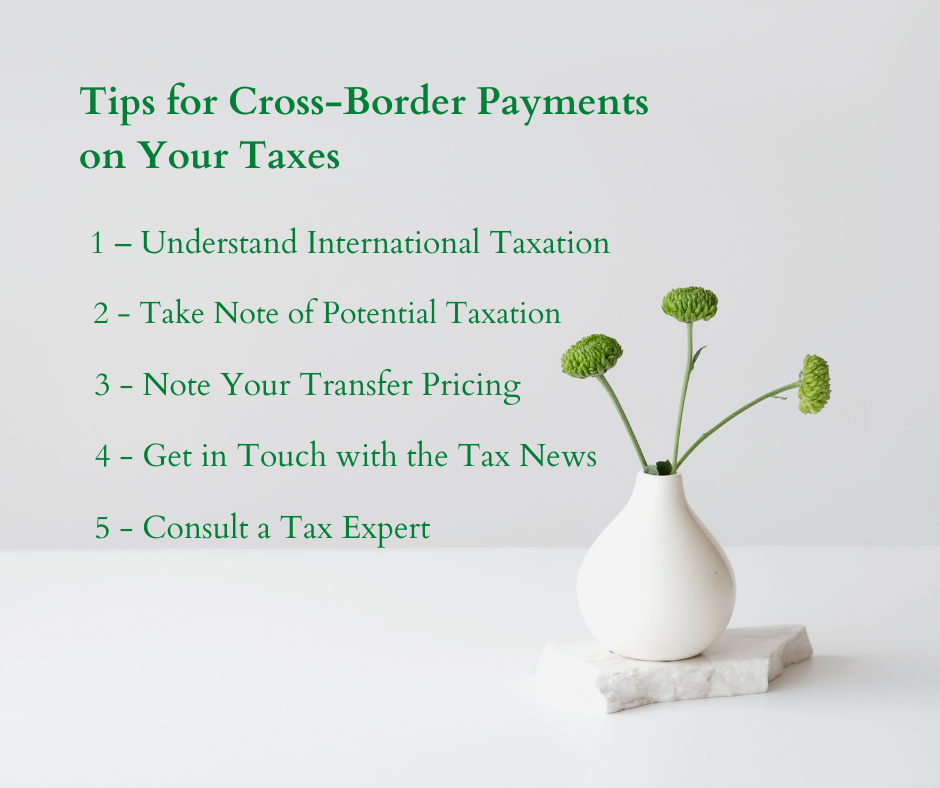As apparent by the name, “International taxation” refers to the taxes applied on the income that businesses and companies earn by selling their product and services internationally.
With the continuous advancement in technology, people are cashing customers outside the border to attract better revenues.
Cross-border transactions are ones in which the payer and the beneficiary are in different nations.
With the increase in trade, businesses are selling their products to their international customers.
Therefore, an increase in cross-border payments is seen. However, the tax implications of cross-border payments are not taken into consideration.
In this article, we have discussed a guide about tax considerations that can make your cross-border payments more manageable.

Understand International Taxation
You must consider your current tax position before signing up for international agreements.
Before you sign up a contract with overseas customers, you should take notice of the tax rule and implications with the appropriate country and about the possibility of relief.
It will make things clearer for you and can potentially save your money as well. Moreover, you will be able to make appropriate changes to the contract before it’s too late.
Take Note of Potential Taxation
It is preferable for a business to look after the tax rates and the tax treaty position of the country you decide to sign a contract with.
Tax treaties specify which nation will tax the money produced by a business that operates in both. Moreover, local tax registrations of the relevant country should also be checked out.
Potential advantages:
- It will make the tax implications clear for you.
- You can also add them to the contracts being signed up.
- These steps will aid you in avoiding any undesirable tax repercussions.
- It will also allow the business to review if any added costs can be transferred to the customer in the form of higher prices of goods and services.
We also recommend consulting a cross-border specialist. This will help you in increasing the profit margin of your business and make you aware of all the international tax rules.
Note Your Transfer Pricing
What is transfer pricing? You must have heard about it when talking about cross-border payments.
Transfer pricing is a price that a company charges for goods or services between businesses with a mutual multinational group.
These transactions include:
- Tangible goods
- Intangible goods
- Services
- Financing
Transfer pricing greatly affects multinational companies that are involved in transactions with each other.
Moreover, the arm’s-length standard is the guiding principle for calculating transfer prices between controlled taxpayers.
Get in Touch with the Tax News
Generally, it is advisable to be familiar with the recent tax news. However, you need to take extra steps to familiarize yourself with the international tax news.
With the continuous rise in trading, the international tax prospect is also changing. Your business needs to take steps to protect tax revenues.
You also need to follow the guidelines from the IRS and other recognized standard institutions to keep a healthy check on your taxation.
Consult a Tax Expert
Understanding international taxation is complex. It can somehow mislead you to file your taxes with error.
We always recommend consulting a cross-border specialist first. A professional CPA can potentially save you money and time.
